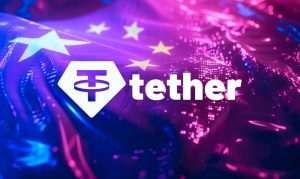Possible Challenges of Integrating AI into Smart Contracts While Balancing Innovation and Security


In Brief
The integration of AI and smart contracts could significantly change trust and security in decentralised systems. Solutions include real-time fraud detection, AI oracles, and AI-powered auditing tools.
The way we think about trust and safety in decentralised systems might be completely changed by the convergence of AI and smart contracts. Self-executing contracts, or smart contracts, have the conditions of the deal built right into the code. They are made to automatically enforce contracts, doing away with the need for middlemen and lowering the possibility of individual mistakes.
The Evolution of Smart Contracts
On blockchain networks like Ethereum, smart contracts—which are frequently written in Solidity—allow automated transactions with little to no human involvement. The future of this kind of innovation is in its ability to decrease the need for middlemen and instead expedite corporate procedures while enhancing clarity. However, the same automation and openness also come with hazards because cyber assaults, malicious inputs, and code errors can result in serious harm and losses.
However, the integration of AI into smart contracts also introduces new challenges. One of the primary concerns is the potential for malicious actors to exploit AI-powered smart contracts. This is particularly concerning given the potential for AI to be used to manipulate the underlying code of the smart contract.
There have been several well-publicised instances involving data theft and financial loss throughout the history of smart contracts. These incidents, which include the iconic DAO attack and the Binance Smart Chain flaws, have brought attention to the urgent need for strong security measures. As a result of a smart contract weakness, the DAO attack alone caused the loss of approximately $50 million in Ether, while the KingDice hack yielded over $300,000 in Ether that was taken.
To address these concerns, it is essential to prioritise the development of AI-powered smart contracts that are designed with security in mind. This can be achieved through the use of advanced AI algorithms that are specifically designed to detect and prevent malicious activity.
Possible Solutions
While AI-powered weakness discovery is a promising area, smart contract security may also be increased via real-time fraud detection and a variety of code representations. Methods such as Multi-Agent Fuzz Testing, which blends multi-agent strategies with advanced reinforcement learning, offer a more comprehensive investigation of possible threats. Furthermore, models with an emphasis on local information loss, such as ICodeNet, provide greater precision for identifying vulnerabilities.
Using AI oracles to deliver smart contracts with real-time data and insights is one possible option. They may be used to confirm that deals are legitimate and that the conditions of the contract are being followed. An artificial intelligence oracle, for instance, might be used to confirm an individual’s identity when they try to complete an operation, making sure it’s authentic and not a scam.
Another potential solution is the use of AI-powered auditing tools that can detect and prevent fraudulent activity. Solutions like GVD-net and Eth2Vec detect Ethereum smart contract flaws, while modular frameworks like DeeSCVHunter and SCscan offer novel approaches to identifying vulnerabilities.
Furthermore, it is also important to consider the potential risks and challenges associated with the integration of AI into smart contracts. For instance, there is a risk that AI-powered smart contracts could be used to manipulate the underlying code of the smart contract, potentially leading to fraudulent activity.
To sum up, the incorporation of artificial intelligence into smart contracts holds the capacity to completely transform our understanding of trust and security in decentralised systems. The creation of such contracts with safety in mind must, nonetheless, take precedence. Advanced AI algorithms, AI-powered oracles, and AI-powered auditing tools may all be used to do this.
Disclaimer
In line with the Trust Project guidelines, please note that the information provided on this page is not intended to be and should not be interpreted as legal, tax, investment, financial, or any other form of advice. It is important to only invest what you can afford to lose and to seek independent financial advice if you have any doubts. For further information, we suggest referring to the terms and conditions as well as the help and support pages provided by the issuer or advertiser. MetaversePost is committed to accurate, unbiased reporting, but market conditions are subject to change without notice.
About The Author
Viktoriia is a writer on a variety of technology topics including Web3.0, AI and cryptocurrencies. Her extensive experience allows her to write insightful articles for the wider audience.
More articles

Viktoriia is a writer on a variety of technology topics including Web3.0, AI and cryptocurrencies. Her extensive experience allows her to write insightful articles for the wider audience.














